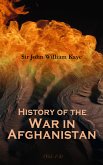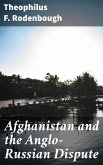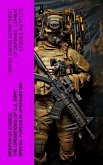Sir John William Kaye's "History of the War in Afghanistan" (Volumes 1-3) presents a meticulously detailed account of the First Anglo-Afghan War (1839-1842), showcasing Kaye's prowess in combining narrative history with analysis. Delving into the intricate socio-political dynamics of 19th-century Afghanistan, Kaye critiques British imperial strategies while drawing on extensive firsthand reports, letters, and government documents, thus situating his work within the burgeoning field of diplomatic and military history. His literary style oscillates between an engaging narrative and a reflective analysis, seamlessly weaving the complexity of military conflict with the human stories that unfold within it. Sir John William Kaye, a British soldier, historian, and writer with deep connections to India, was profoundly influenced by his experiences during the British Raj. His firsthand knowledge of the region and its people, coupled with his upbringing in a military family, equipped him with unique insights into the geopolitical repercussions of colonialism. Kaye's objective was not merely to chronicle events but to understand the multifaceted cultural and historical contexts that shaped them, which informs the depth and nuance of his historical narrative. This book is an essential read for anyone interested in military history, British imperialism, or Afghan studies, as it provides a comprehensive examination of an often-overlooked conflict with lasting implications. Kaye's work stands as a pivotal contribution to historical literature, encouraging readers to grapple with the complexities of cultural encounters and the ramifications of imperial ambition.
Dieser Download kann aus rechtlichen Gründen nur mit Rechnungsadresse in A, B, BG, CY, CZ, D, DK, EW, E, FIN, F, GR, H, IRL, I, LT, L, LR, M, NL, PL, P, R, S, SLO, SK ausgeliefert werden.









